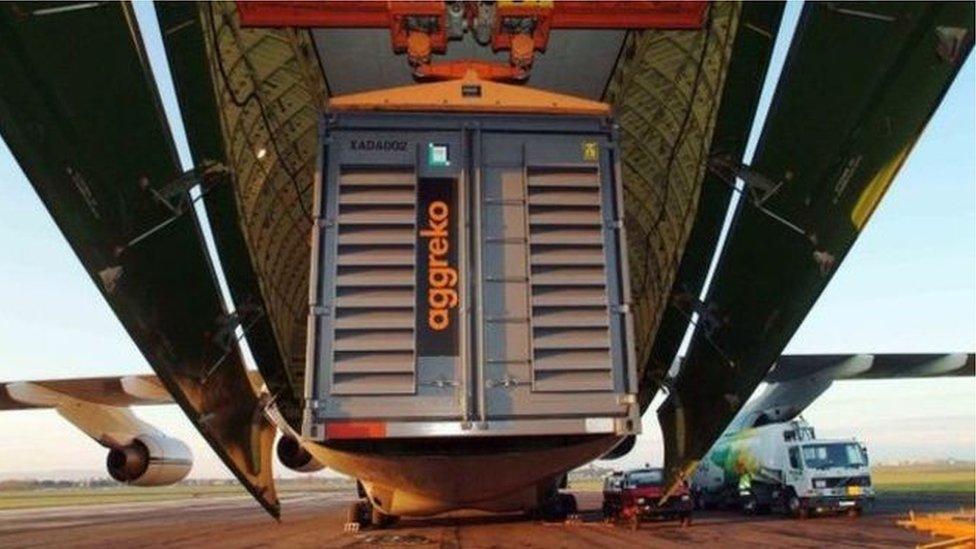Power provider Aggreko announces drop in profits
- Published

Aggreko has won the contract to provide power to the Glasgow 2018 European Championships
Aggreko, the Scots-based temporary power provider, has announced a drop in profits while it expands into more battery and solar provision.
The global company is headquartered in Glasgow and assembles temporary power units at its Dumbarton plant.
Investment there is expected to remain steady this year, though it fell below plan last year, and the firm intends to push for further cost reductions.
Pre-tax profit for 2017 fell 11% to £154m. Revenue was up 14% to £1.7bn.
Aggreko, which grew out of the Christian Salvesen food firm, has won the contract to provide power to the Glasgow 2018 European Championships.
It previously secured similar deals for this year's Winter Olympics in South Korea and the London Olympics in 2012.
It will also provide temporary power to the Commonwealth Games in the Gold Coast, Australia, later this year.
Much of its work has been in supplying temporary power units where countries lack adequate capacity to generate electricity, though that is becoming a smaller part of what it does.
New contracts
Major contracts continue with Bangladesh, Malawi, Yemen and Sri Lanka. It has new contracts in Eritrea and Madagascar.
A contract in Argentina, signed in 2008, has had to be renegotiated and will mean a hit to the firm in future accounts.
Among the new contracts is the provision of solar power units alongside diesel, being trialled in Eritrea. Last year, Aggreko bought Younicos, a Berlin-based company that specialises in battery power on a utility and industrial scale.
In a statement with the annual financial results, the company said: "The global provision and consumption of power is experiencing a significant transition as markets seek to decarbonise, decentralise and digitalise.
"As a result, we are investing for future growth, particularly in distributed energy solutions, where our modular, mobile fleet combined with storage and renewables integration capability position us well in this changing landscape. These initiatives will be captured within our new Global Solutions business."
Dan Ibbetson, head of that division, explained: "The majority of new energy generating capacity is now renewable. This will help to combat climate change and, over time, will reduce costs to consumers. However, these are intermittent and can cause instability in power networks. This makes it difficult to provide consistent, stable power.
"Increasingly we are seeing the need for localised fast-start and shorter generation power to help balance networks. This plays perfectly to our modular mobile business model.
"Our existing thermal generators offer scalable generation which can be located strategically and step in quickly when renewables need help."